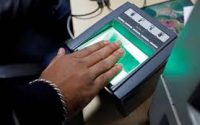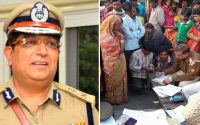$100 Website Offer
Get your personal website + domain for just $100.
Limited Time Offer!
Claim Your Website NowSupreme Court Says West Bengal Lawyers’ Strike Since April 29 An ‘Extraordinary’ Situation
Source:- news18.com
The apex court noted that the ‘call for cessation of work given by the Bar Council of West Bengal’ last month was proving to be a hindrance in seeking relief for eight persons, who were arrested on April 23 in connection with the alleged IPL betting racket.
New Delhi: The Supreme Court has termed as “extraordinary” the situation in West Bengal where lawyers are observing strike since April 29 impacting the fundamental right of life and liberty of citizens to even seek bail from courts.
It directed that the petitioners, arrested for and alleged IPL betting racket, be produced before the Calcutta High Court on Wednesday in connection with their bail pleas.
The apex court noted that the “call for cessation of work given by the Bar Council of West Bengal” on April 29 was coming in the way of seeking relief for eight persons, who were arrested on April 23 in connection with the alleged IPL betting racket.
A vacation bench of Justices Indira Banerjee and Sanjiv Khanna observed this while hearing a petition filed by eight persons, who have been arrested for the alleged offences under the provisions of the West Bengal Gambling and Prize Competition Act, seeking interim bail.
The counsel appearing for these accused said that the Chief Judicial Magistrate had rejected their bail plea on April 26 but they were “without remedy”, as advocates all over the state have judicial struck work completely.
“The petitioners shall be produced before the (Calcutta) High Court on May 22, 2019 for necessary orders for bail. It is, however, made clear that this order is not to be construed as any observation with regard to entitlement of the petitioners to bail,” the bench said.
“This order is passed in the special facts and circumstances of the case having regard to the extraordinary situation which has arisen in the state of West Bengal by reason of the call for cessation of work given by the Bar Council of West Bengal on April 29, 2019 and its consequences and its impact on the fundamental right of citizen under Article 21 of the Constitution. This order may not be treated as a precedent,” the bench noted in its order while disposing of the petition.



